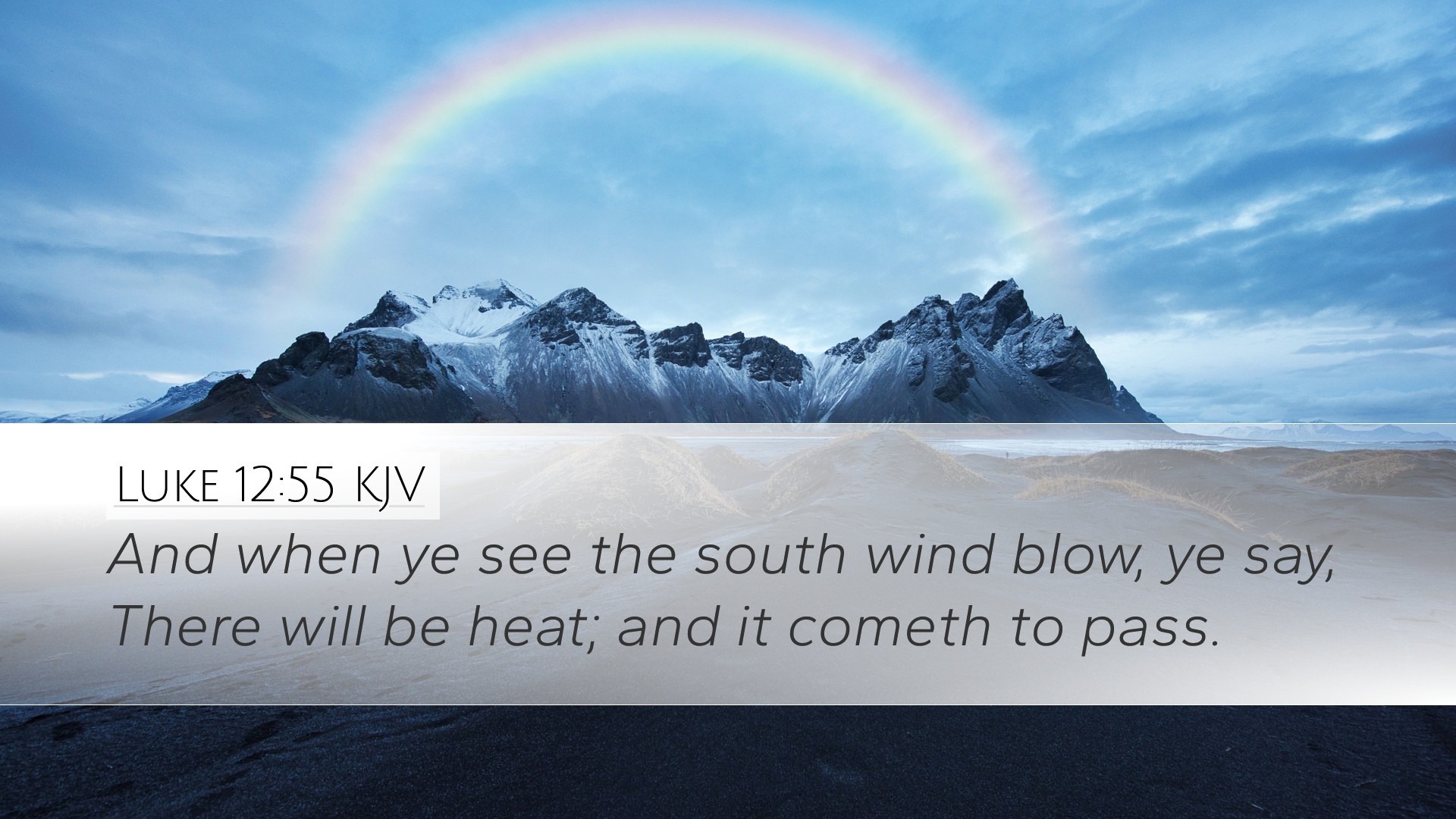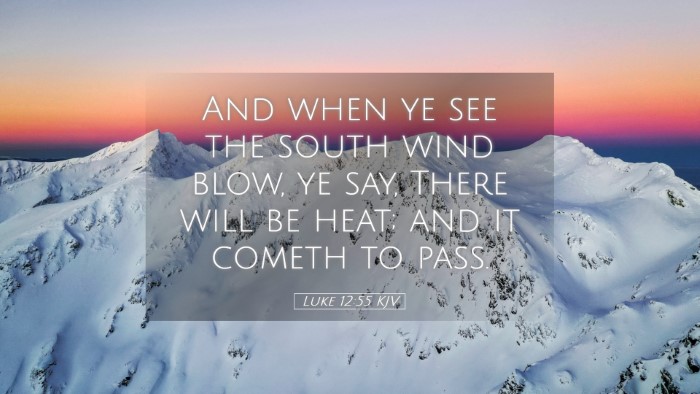Bible Commentary on Luke 12:55
Verse Context: Luke 12:55 states, "And when ye see the south wind blow, ye say, There will be heat; and it cometh to pass." This verse illustrates a principle of discernment regarding natural signs and the corresponding expectations in life.
Introduction
This passage is part of a larger discourse by Jesus, in which He emphasizes the importance of understanding the signs of the times. The Lord effectively chastises a generation that can interpret meteorological phenomena but fails to perceive the spiritual implications surrounding them. In the following commentary, insights from Matthew Henry, Albert Barnes, and Adam Clarke are synthesized to provide a comprehensive understanding of this verse.
Interpretation and Meaning
Natural Signs and Spiritual Discernment
Matthew Henry's Perspective: Henry argues that the insight displayed by the people in understanding the weather serves as an indictment against their spiritual blindness. Just as they can predict the coming heat by observing the wind, they should be able to discern the signs of the times concerning Christ's ministry and His imminent kingdom.
Albert Barnes Commentary: Barnes also stresses the hypocrisy of the audience. While they are quick to predict weather patterns, they neglect the spiritual urgency of Jesus' message. He highlights that the observations of nature should lead to a greater understanding of God’s work, urging believers to become more spiritually aware and responsive.
Adam Clarke's Insights: Clarke elaborates on the phrase “south wind blow,” noting its significance in the Mediterranean climate, where a south wind often heralds warm weather. This is a metaphor for how people can easily interpret what is evident in nature but struggle with the divine revelations that require deeper discernment and faith.
Spiritual Implications
This passage warns against a superficial understanding of spiritual matters, which can echo within contemporary Christian circles as well. Just as the people could forecast a change in weather, believers are called to be astute observers of God’s revelations in Scripture and current events.
Theological Reflections
Call to Awareness
Henry's Viewpoint: The necessity to be spiritually aware is a fundamental teaching in Jesus' ministry. Henry emphasizes that neglecting to discern the spiritual state of one's surroundings is a failure to acknowledge God's active role in the world.
Barnes' Theological Insight: Barnes calls attention to the consequences of such neglect—a lack of preparedness for the coming of the Lord. Discerning the times involves recognizing the urgency of the Gospel and the need for repentance and readiness.
Clarke’s Emphasis: Clarke accentuates that recognizing signs—whether natural or spiritual—requires humility and a willingness to submit one’s intellect and senses to the Holy Spirit’s guidance.
Practical Applications
Encouragement for Modern Believers
- Spiritual Vigilance: Believers are encouraged to maintain a degree of vigilance and awareness concerning the spiritual climate around them, drawing parallels with the signs of nature.
- Readiness for Christ’s Return: The urgency of being prepared for Christ’s return is fortified through this verse, as it serves as a reminder for Christians to live in ethical and moral readiness daily.
- Insight from Nature: Engaging with creation should lead to deeper theological ponderings rather than mere observation; believers should see how God speaks through His creation to communicate truths about Himself.
Conclusion
In reflecting on Luke 12:55, the church today is called not just to observe the world around them but to interpret it through a biblical lens. Drawing from the wisdom of Matthew Henry, Albert Barnes, and Adam Clarke, we are reminded of the sacred duty of discernment and preparation in the life of a believer. Just as Jesus highlighted the capability of the people to understand weather patterns, He implores us to develop a sensitivity to the signs of the times pointing to His kingdom.


